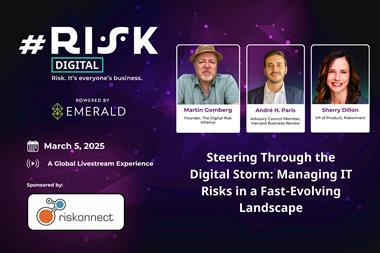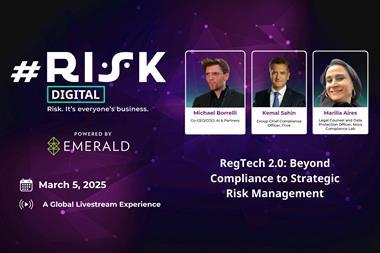AI: Risk and Opportunity in Balance
Bojana began by acknowledging the inherent risks associated with AI, but she firmly rejected the notion that these risks should be a cause for fear or paralysis. Instead, she positioned AI as a powerful tool with the potential for significant societal benefit, provided it’s developed and deployed responsibly. She pointed to recent advancements, like those seen with China’s Deepseek model, not as evidence of an inevitable “arms race,” but as a testament to the power of constraints and regulation to drive innovation.
Bojana argued that restrictions, rather than stifling progress, can force developers to find more efficient and resource-conscious solutions. This challenges the prevailing narrative that deregulation is always the best path to technological advancement.
Date Enablement: A Foundation for Trust and Growth
A core theme throughout the interview was the essential role of data enablement in fostering trust and enabling responsible innovation. Bojana dismissed the idea of a binary choice between data protection and economic growth, arguing that they are, in fact, mutually reinforcing.
She stated, “Data protection law is a really important underpinning for that economic growth…it’s a really important part of ensuring that that growth is achieved in a way that has wider public support.” People need to trust that technology will use their data responsibly, she explained, and that trust is the “license to operate” for businesses in the digital age.
Bojana highlighted that foundational data protection principles are ‘evergreen’ and are there to stay, namely transparency, respecting peoples’ rights and building a secure data environment.
Global Collaboration and Regulatory Divergence
While acknowledging the differences in regulatory approaches across jurisdictions (e.g., the EU, US, and China), Bojana emphasised the ongoing efforts towards international cooperation. She cited the active participation of the ICO (where she previously worked) in global forums like the G7, GPA, and OECD, as well as bilateral agreements with numerous countries. These collaborations aim to establish common ground and facilitate “data free flow with trust.”
However, Bojana also recognised the growing trend towards data localisation and the tensions between enabling data flows and protecting national interests. This creates a complex landscape for multinational corporations, requiring them to navigate a “hodgepodge” of regulations. She stressed that effective, up to date, and robust data management and a focus on organisational accountability will become the compass to navigate this.
The Evolving Role of Privacy Professionals
Bojana sees privacy professionals as playing an increasingly central role in this evolving landscape. They are well-positioned to expand their portfolios to include AI governance, given their existing expertise in data management, ethical considerations, and building accountability programs. She cautioned against creating yet another layer of compliance bureaucracy, urging organisations to leverage existing frameworks and integrate AI governance into existing data protection programs.
“Use what you can, what you have, and leverage for the multiple needs of this new world, which are not just privacy, but all of these different rights,” she advised.
Smart Regulation and the Future
Bojana advocated for “smart regulation” that is outcomes-based, proportionate, and risk-based. She emphasised the importance of regulators being technically competent, engaging with industry, and focusing on areas where there is genuine risk and public interest. She also called for simplification of existing regulations, noting the burden of overlapping and sometimes contradictory requirements. She explained that regulators need to work with industry experts as well as policy makers to achieve “smart regulation.”
Key Takeaways:
- AI risk is real, but manageable: AI presents both significant risks and opportunities, requiring a balanced and proactive approach.
- Regulation can drive innovation: Constraints and clear guidelines can foster creativity and efficiency.
- Data protection is foundational: Strong data protection practices are essential for building trust and enabling responsible technology adoption.
- Global collaboration is crucial: International cooperation is needed to address the global challenges of data privacy and AI governance.
- Privacy professionals are key players: Their expertise is increasingly valuable in navigating the evolving landscape.
- Smart regulation is essential: Regulations should be outcomes-based, proportionate, and risk-based, focusing on areas of genuine concern.
- Data management and accountability: Is key for organisations to be able to demonstrate compliance, and build customer trust.
The interview with Bojana Bellamy provided a timely and insightful perspective on the critical issues at the intersection of data protection, AI, and global governance. Her message was clear: organisations must embrace a holistic, proactive, and collaborative approach to risk management, recognising that responsible data practices are not just a legal obligation, but a foundation for sustainable growth and innovation in the digital age.
Continue the Conversation at #RISK Digital Global
Many of the themes discussed by Bojana Bellamy will be explored in greater depth at the upcoming #RISK Digital Global event on March 5th. This free, virtual event offers a unique opportunity to hear from leading experts and practitioners from around the world. Sessions particularly relevant to the topics raised in this interview include:
- “Privacy in a Post-Cookie World: Strategies for Compliance and Customer Trust”: This directly addresses the need to build trust and adapt data practices, a core theme of Bojana’ss comments.
- “Data Sovereignty and Cross-Border Challenges in 2025: Preparing for a Fragmented World”: This session tackles the complexities of international data flows and localisation, which Bojana highlighted as a growing challenge. This session features Caro Robson who is featured in the interview.
- “Transforming GRC: How AI is Revolutionising the Role of Compliance”: Explore first hand the practical uses of AI in risk and compliance.
- “China, Deepseek, and the AI Race: Balancing Innovation and Risk”: This session directly addresses the concerns raised about the AI “arms race” and the need for responsible innovation, featuring Caro Robson again.
- “RegTech 2.0: Beyond Compliance to Strategic Risk Management”: Discusses how technology is developing tools that provide greater risk insights.
Don’t miss this opportunity to gain a global perspective on risk and connect with the leading voices shaping the future of data governance and AI. Register for free today for #RISK Digital Global and secure your access to these essential sessions and more:































No comments yet